- Homepage
- Harvesting Rainwater
- Water Scarcity in the World
Water scarcity in the world
Water scarcity in the world and how we can make ourselves resilient to climate-change are our themes for today.
What impact is the drought having on your home? Are you no longer able to enjoy a decent shower? Is the profitability of your business and future growth being affected? Or is it simply municipal incompetence that is causing the problem?
Is it disillusioning investor and stakeholder confidence?
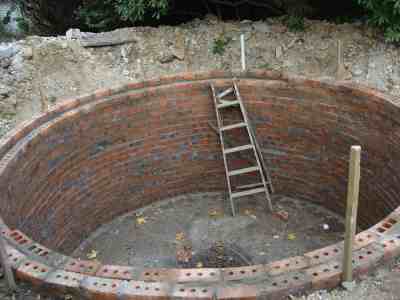
This page was last updated by Bernard Preston on 8th April, 2025.
Water scarcity in the world is a serious problem but how is it impacting you in your own home?
Are you reluctant to wash your hands regularly and becoming worried about being affected by other people's bugs or passing on your own, for that matter?
It is a disease issue too; you are more vulnerable to being infected by the nasty viruses doing the rounds, for example.
There are many businesses in agriculture, food-processing and commerce that are utterly dependent on water. Scarcity is having a huge impact on these organisations.
With demand exceeding supply there has to be a change in our thinking before we run out, as was about to happen in Cape Town, South Africa in 2018; and as is again occurring in the east in 2022. Can you imagine a city of 4 million people with no water when they turn the taps on and unable to shower nor flush the toilet? It is coming very close once more.
How do we make our homes and businesses more resilient in these times of water scarcity? What is your opinion on the bath vs shower debate?
Water scarcity in the world
Water scarcity in the world is seriously threatening many major cities and countries
but we can make ourselves largely immune to the problem by building an
inexpensive underground reservoir; in our gardens adjacent to our homes.
In 2022 there was a mighty rattling of sabres in North Africa over who has the rights to the Nile that issues forth from the Ethiopian highlands. The Grand Renaissance Dam is threatening the water supply to both Egypt and the Sudan.
"There is no need to enter into an unnecessary war. It can't start because of water."
- Ethiopia's water minister, Seleshi Bekele
This is a growing problem in North Africa that can only escalate and in the subcontinent too, reinforcing that water scarcity in the world will only worsen; but there's plenty of rain falling on most of our rooves, if we were only to harvest and store it.
Becoming resilient in the face of these serious shortages is our theme-tune.
what's your water innovation?
That unsightly brick structure, when complete, is nestled largely underground. A plentiful supply of water is an essential part of any backyard permaculture garden.
This is my water innovation. What's yours?
Twelve years later the reservoir has nestled into the garden; it is no longer an unsightly structure.
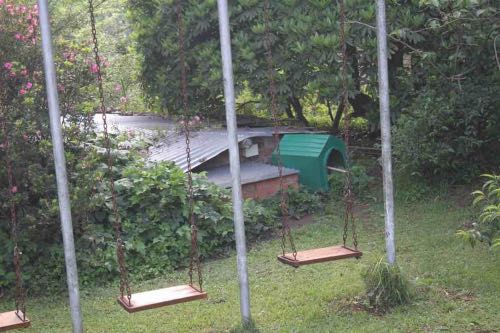
What other cities are affected?
There are many reports in the press confirming that other major cities like Los Angeles and Brisbane, for example have likewise been affected. The themes are always the same; drought, leaking infrastructure and destruction of the environment.
The rise of carbon in the atmosphere to above 400ppm for the first time in three million years has turned planet Earth into a monumental greenhouse with soaring temperatures and catastrophic climate-change.
There is absolutely nothing that the individual can do about such matters.
According to the UN's Food and Agriculture Organisation every year 43 trillion cubic metres of renewable freshwater circulates above and below ground; over 16,000 litres per person. That is more than enough. But how do you and I get our fair share?
The causes of water scarcity arise largely from poor planning. Here we consider two models.
One is bigger and better. We call it the Texas-model; the other as it is done on the tiny island of Bermuda where there are no rivers, lakes or dams.
Harvesting rainwater
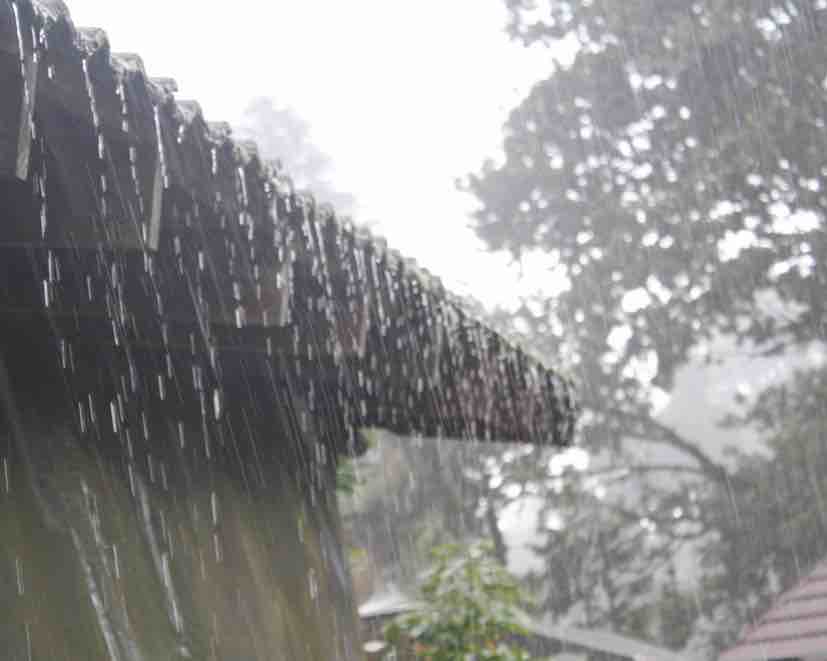
But there is another thing we can do; and it is profound. We can harvest the rain that falls on our roofs in response as individuals to the water scarcity in the world. What is more it's free; but we must have gutters. The real cost comes in storing it but that is a moderate once-off fee; it is not astronomical.
The total water on the planet has not changed; but it is the way in which it is being distributed around the world and the manner of that delivery that has altered dramatically.
Rain falls on the roofs of the rich and poor alike in India, Brazil and Australia; and the rest of the world. Certainly it is more haphazard latterly, alternating between floods and droughts. Virtually all of it is lost, soaking away into the ground or ending up in storm-water drains; and causing catastrophic damage.
About one eighth of the rainwater reaches large storage dams; the rest is lost. The use of even big above-ground tanks is quite inadequate.
Collecting the rainwater is not intrinsically difficult. Gutters and down-pipes directing it through underground conduits is really very straightforward; and most of the infrastructure already exists.
What is needed is a totally new way of thinking about how to store that water safely, in large quantities on our own properties. Then there is no leaking infrastructure to concern us, a great reduction of flooding and it is certainly cleaner than that which the utilities are currently supplying us with.
In many areas like Cape Town where the rain comes directly in from the ocean, with no pollutants it is pristine.
Water for agriculture and industry
I call the Broad Bean, also known as a Fava in many parts of the world as the queen of legumes. It is the only vegetable that has all the essential amino acids and is a rich source of the happy hormone, dopamine; fibre and most of the B-vitamins too.
The L-dopa completely controls the tremor in my right hand; I am threatened by Parkinson's Disease.
But it has a very shall rooting system and demands deep irrigation in the dry season when it grows best; in winter at Our Green Home.
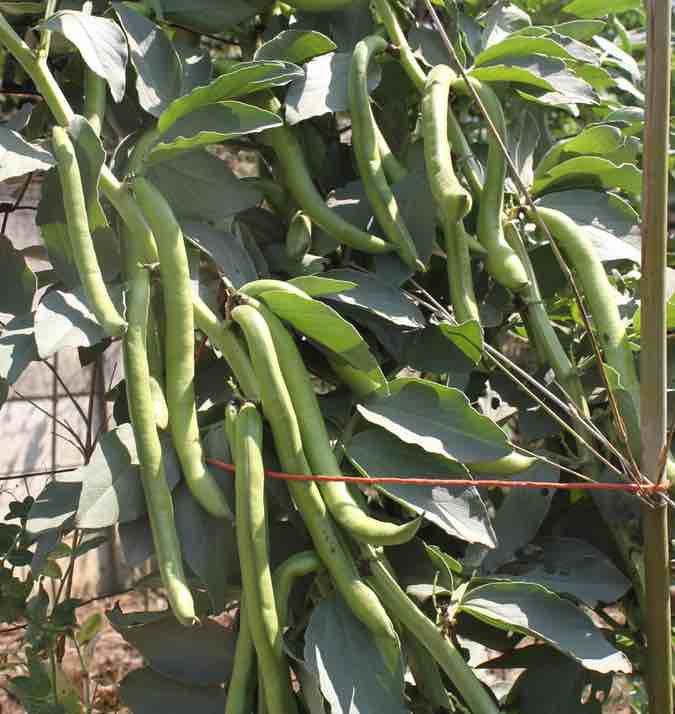 Simply cannot grow the queen of beans without water and a trellis or staking
Simply cannot grow the queen of beans without water and a trellis or stakingI foresee in the future that water is going to be directed in the
main to industry and agriculture; so that our people have food on the
table and work. No one can grow broad beans without irrigation.
And the price of water to individual homes is going to rise dramatically, forcing us to become more resilient in the face of these challenges. There has already been an astronomic 50% increase in 2023.
The onus is shifting from the state and utilities providing all, to we having to harvest the sunshine and rain that fall free of charge on our own roofs; courtesy of the heavens.
The cost of a reservoir in the
face of water scarcity in the world to us as individual home owners is
surprising low; with a payback time of less than five years. There is an
unlimited volume to be harvested for the shower, flushing our toilets and irrigating our
gardens; so why are the experts so reluctant to give private underground cisterns the green light? We even drink it.
Part of the reason is that local government in large measure finances its programmes through water and electricity tariffs. New funding for municipalities may have to be sought before they will come to the party.
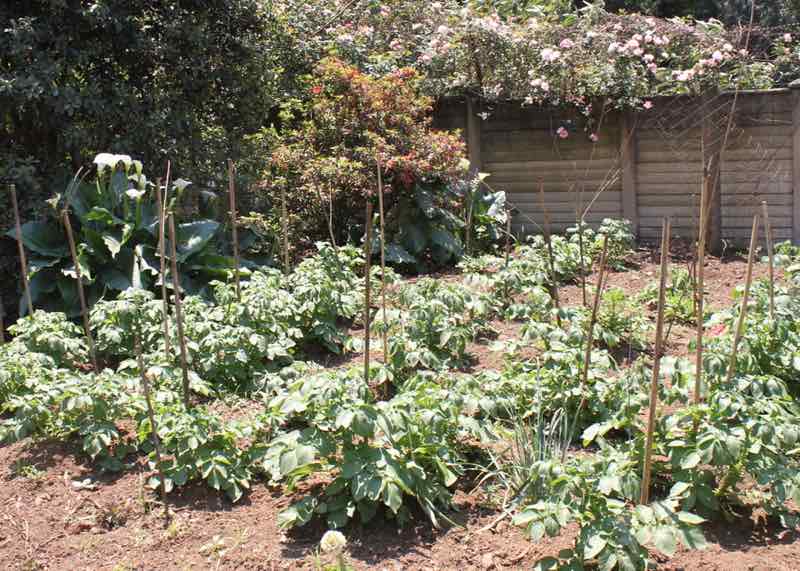 Potatoes too need water.
Potatoes too need water.Water scarcity in the world is not going to improve; if anything, the situation will worsen and probably quite quickly. If national and local governments are tardy in stepping forward to encourage residents to harvest and store their own rainfall, then we go it alone.
The UN stated in 2015 that there is in fact enough fresh water to meet the world's growing needs; but in the future that will not be the case without dramatically changing the way it is used, managed and shared.
The global water crisis is one of governance, they said.
But can we rely on government to do that or should we be making our own provision for the future? Where is our water is the cry increasingly heard from the poor and vulnerable.
Our rainwater harvesting model consists of gutters, down pipes and underground conduits. We use the municipal supply very occasionally; twice for a month each time in ten years at the height of two droughts. And during the annual clean-out of the reservoir for a few days; only until the next storm. It's all a fundamental part of what we call our green journey.
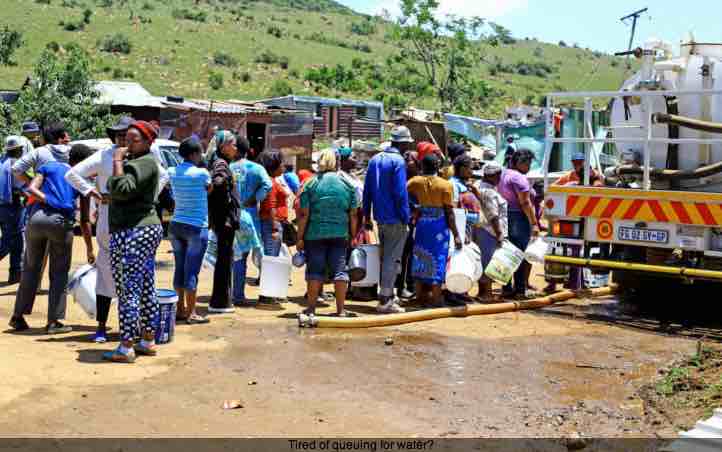 Water scarcity in the world
Water scarcity in the worldWhen browsing use right click and "Open Link in New Tab" or you may get a bad gateway signal.
The material expressed on this page is gleaned from the nutritional and environmental literature; it is clearly referenced. A plain distinction is made between the author's opinion and that which is scientifically proven. When in doubt consult your health professional.
To suggest a correction or clarification, write to Dr Bernard Preston here. Contact.
Newsletter
Our newsletter is entitled "create a cyan zone" at your home, preserving both yourself and Mother Earth for future generations; and the family too, of course. We promise not to spam you with daily emails promoting various products. You may get an occasional nudge to buy one of my books.
Here are the back issues.
- Lifestyle and ideal body weight
- What are ultra-processed foods?
- Investing in long-term health
- Diseases from plastic exposure
- Intensive lifestyle management for obesity has limited value
- A world largely devoid of Parkinson's Disease
- The impact of friendly bacteria in the tum on the prevention of cancer
- There's a hole in the bucket
- Everyone is talking about weight loss drugs
- Pull the sweet tooth
- If you suffer from heartburn plant a susu
- Refined maize meal and stunting
- Should agriculture and industry get priority for water and electricity?
- Nature is calling
- Mill your own flour
- Bake your own sourdough bread
- Microplastics from our water
- Alternative types of water storage
- Wear your clothes out
- Comfort foods
- Create a bee-friendly environment
- Go to bed slightly hungry
- Keep bees
- Blue zone folk are religious
- Reduce plastic waste
- Family is important
- What can go in compost?
- Grow broad beans for longevity
- Harvest and store sunshine
- Blue zone exercise
- Harvest and store your rainwater
- Create a cyan zone at your home
- Homepage
- Harvesting Rainwater
- Water Scarcity in the World
Did you find this page interesting? How about forwarding it to a friendly book or food junkie? Better still, a social media tick would help.
- Homepage
- Harvesting Rainwater
- Water Scarcity in the World
Address:
56 Groenekloof Rd,
Hilton, KZN
South Africa
Website:
https://www.bernard-preston.com